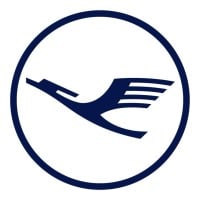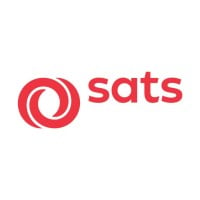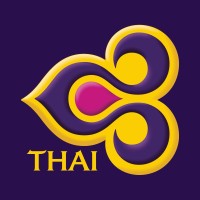Company Cyber Security Posture
NANA
NA Company Details
NA
NA
NA
NA
NA
NA
Scan still pending
NA
NA
Between 200 and 800
This score is AI-generated and less favored by cyber insurers, who prefer the TPRM score.
 NA Global Score
NA Global Score.png)

Company Scoring based on AI Models
| Model Name | Date | Description | Current Score Difference | Score |
|---|---|---|---|---|
| AVERAGE-Industry | 03-12-2025 | This score represents the average cybersecurity rating of companies already scanned within the same industry. It provides a benchmark to compare an individual company's security posture against its industry peers. | N/A | Between 200 and 800 |
Company Cyber Security News & History
| Entity | Type | Severity | Impact | Seen | Url ID | Details | View |
|---|
Company Subsidiaries

NA
Access Data Using Our API

Get company history
.png)
NA Cyber Security News
LATAM Airlines Group, IBM sign contract to deliver cybersecurity services
LATAM Airlines Group and its subsidiaries, the leading airline group in Latin America, have signed a contract with IBM to provide services that automate key ...
Google sues LATAM Airlines in US over Brazilian YouTube video dispute
Google sued Chile-based LATAM Airlines in U.S. federal court on Thursday, seeking a declaration that Brazilian courts cannot force the tech ...
LatAm Orgs Face 40% More Attacks Than Global Average
Cyber threats are accelerating faster in Latin America than anywhere else in the world. The trend has been building for at least a year now, ...
LATAM Airlines Mastercard Review 2025
The LATAM Airlines Mastercard by Cardless is a niche credit card that could be worth it for loyal flyers. We review the card's features to ...
LATAM Airlines in talks to end agreement with Voepass as soon as July, sources say
LATAM Airlines is seeking to terminate its codeshare agreement with Brazilian regional carrier Voepass as early as the second half of this ...
Akira Ransomware Targets the LATAM Airline Industry
In June 2024, a threat group utilizing Akira ransomware was discovered targeting a Latin American airline. Akira is the ransomware ...
LATAM Airlines’s Re-IPO | News
LATAM, a company formed by the business combination of LAN Airlines S.A. of Chile and TAM S.A. of Brazil, is Latin America's leading airline ...
China-Linked Earth Alux Uses VARGEIT and COBEACON in Multi-Stage Cyber Intrusions
Cybersecurity researchers have shed light on a new China-linked threat actor called Earth Alux that has targeted various key sectors such as ...
Leading airline companies in the cybersecurity theme
A detailed analysis of the theme, insights into the leading companies, and their thematic and valuation scorecards are included in GlobalData's thematic ...

NA Similar Companies

Indian Airlines Limited
Indian Airlines Ltd has been merged with Air India Ltd. The consolidated company is named as National Aviation Company of India Ltd. It operates under the marketing name of Air India. As of now the Airline operates under both AI as well as IC code. Air India has a subsidiary Low cost carrier Air Ind

SpiceJet Limited
Through LinkedIn, we endeavor to connect with our flyers, exchange ideas, and announce new routes, products, and services, advertise for open positions, and continually evolve our services to better match customer needs. We encourage constructive discussion and feedback, however please note that thi

Lufthansa
Lufthansa is one of the world's largest and most prestigious airlines. With hubs in Frankfurt and Munich, we currently fly to 211 destinations in 74 countries. As an industry innovator, we have long been committed to environmental care and sustainability, operating one of the most technologically-

SATS Ltd.
Headquartered in Singapore, SATS Ltd. is one of the world’s largest providers of air cargo handling services and Asia’s leading airline caterer. SATS Gateway Services provides airfreight and ground handling services including passenger services, ramp and baggage handling, aviation security servi

Thai Airways International
Thai Airways International Public Company Limited (THAI) is a public company registered in The Securities Exchange of Thailand since 1991 with the Ministry of Finance as a dominant shareholder of 47.86 percent. THAI operates the airlines business as a full service carrier, which provides the transp

Air France
Depuis 1933, la compagnie Air France porte haut les couleurs de la France à travers le monde entier. Avec une activité, répartie entre le transport aérien de passagers, le fret, la maintenance et l’entretien aéronautique, Air France est un acteur majeur du secteur aérien. Plus de 45 000 collaborateu

Frequently Asked Questions
Explore insights on cybersecurity incidents, risk posture, and Rankiteo's assessments.
NA CyberSecurity History Information
How many cyber incidents has NA faced?
Total Incidents: According to Rankiteo, NA has faced 0 incidents in the past.
What types of cybersecurity incidents have occurred at NA?
Incident Types: The types of cybersecurity incidents that have occurred include .
Additional Questions
What Do We Measure?
















Every week, Rankiteo analyzes billions of signals to give organizations a sharper, faster view of emerging risks. With deeper, more actionable intelligence at their fingertips, security teams can outpace threat actors, respond instantly to Zero-Day attacks, and dramatically shrink their risk exposure window.
These are some of the factors we use to calculate the overall score:
Identify exposed access points, detect misconfigured SSL certificates, and uncover vulnerabilities across the network infrastructure.
Gain visibility into the software components used within an organization to detect vulnerabilities, manage risk, and ensure supply chain security.
Monitor and manage all IT assets and their configurations to ensure accurate, real-time visibility across the company's technology environment.
Leverage real-time insights on active threats, malware campaigns, and emerging vulnerabilities to proactively defend against evolving cyberattacks.




